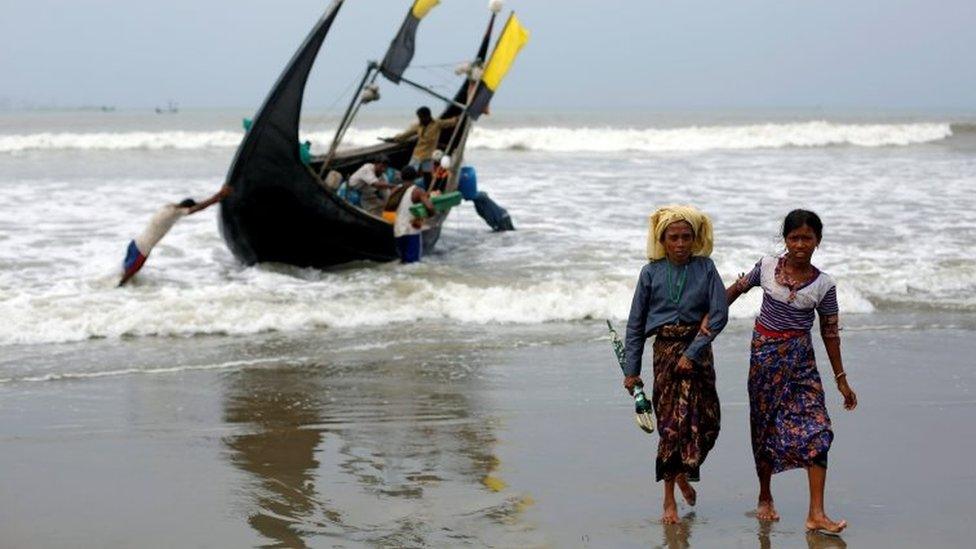Rohingya refugees protest against Myanmar crackdown anniversary
- Published
Rohingya girls in danger: The stories of three young women
Tens of thousands of Rohingya refugees have held protests on the first anniversary of Myanmar's crackdown on the predominantly Muslim minority.
Protesters in the world's largest refugee camp in Bangladesh demanded justice and brandished a banner proclaiming: "Never Again."
Myanmar's military launched its crackdown on the ethnic group after Rohingya militants attacked police posts in Rakhine state on 25 August.
More than 700,000 have now fled.
The United Nations described the military offensive in Rakhine as a "textbook example of ethnic cleansing" and refugees who have fled the violence have told horrific stories of sexual violence and torture.
According to Medecins Sans Frontieres (MSF), at least 6,700 Rohingya, including at least 730 children under the age of five, were killed in the first month after the violence broke out.
But Myanmar's government says it is fighting Rohingya militants and says it is not targeting civilians.
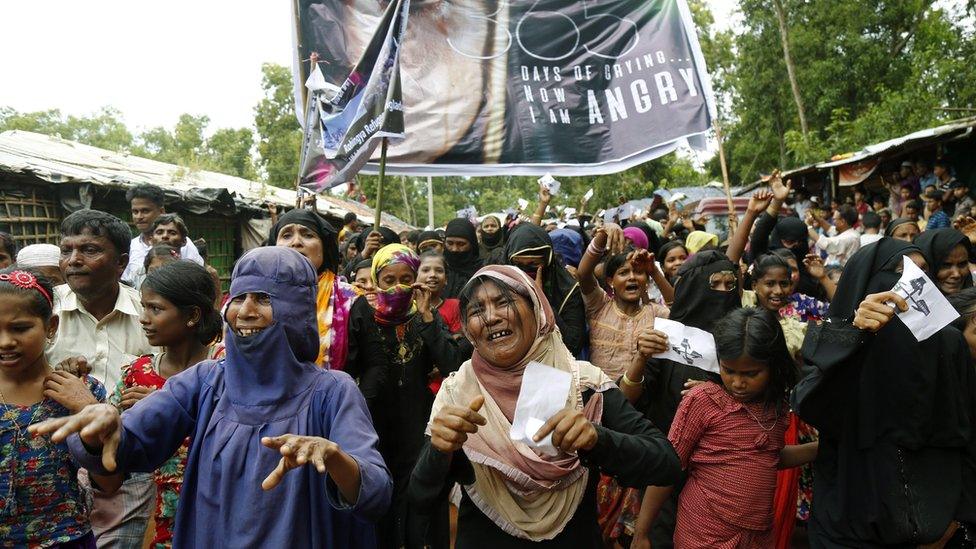
Thousands marched in what has become the world's largest refugee camp
"The Myanmar military raped and killed our women, destroyed our properties," Rakib Hossain told BBC Bengali. "They have to be punished. We want justice."
Ashiya Begum, whose husband was killed during the violence in Rakhine, called camp life "miserable".
"We can't continue like this. Let us go home," she said.
There were also religious services, with an imam reportedly asking God in his sermon to return the Rohingya to their homeland "to see our parents' graves".
A local police chief told AFP that about 40,000 refugees took part in the protests.
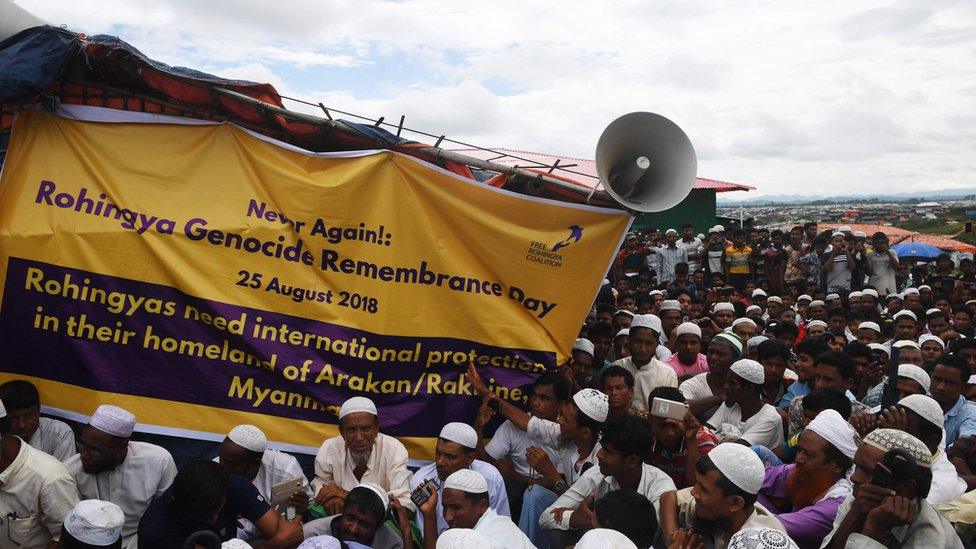
The Myanmar government has agreed a deal with Bangladesh to repatriate refugees but few have returned, with Rohingya leaders saying they would not go back unless they could guarantee their safety.
Myanmar's leader Aung San Suu Kyi, winner of the 1991 Nobel peace prize, has faced international outrage for not condemning the army's actions in Rakhine state.
What has Aung San Suu Kyi said about Rohingya Muslims?
A predominantly Buddhist country, Myanmar denies the Rohingya citizenship.
The government even excluded them from the 2014 census and refused to recognise them as a people.
- Published23 August 2018
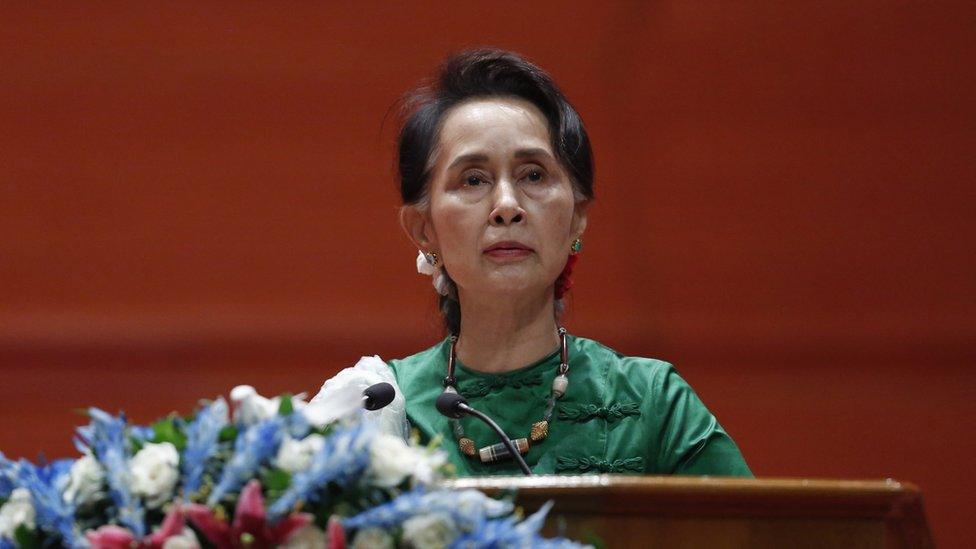
- Published25 January 2018
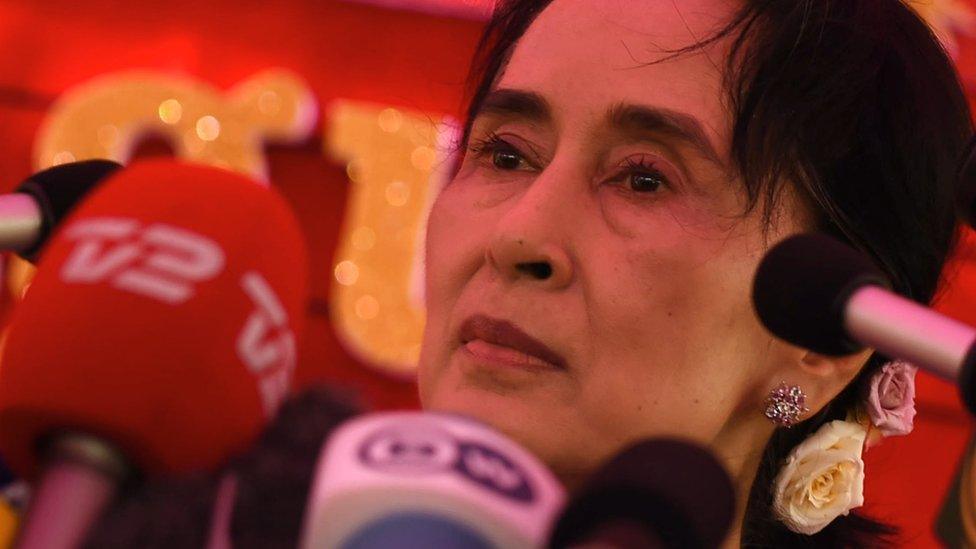
- Published18 December 2017
- Published23 January 2020
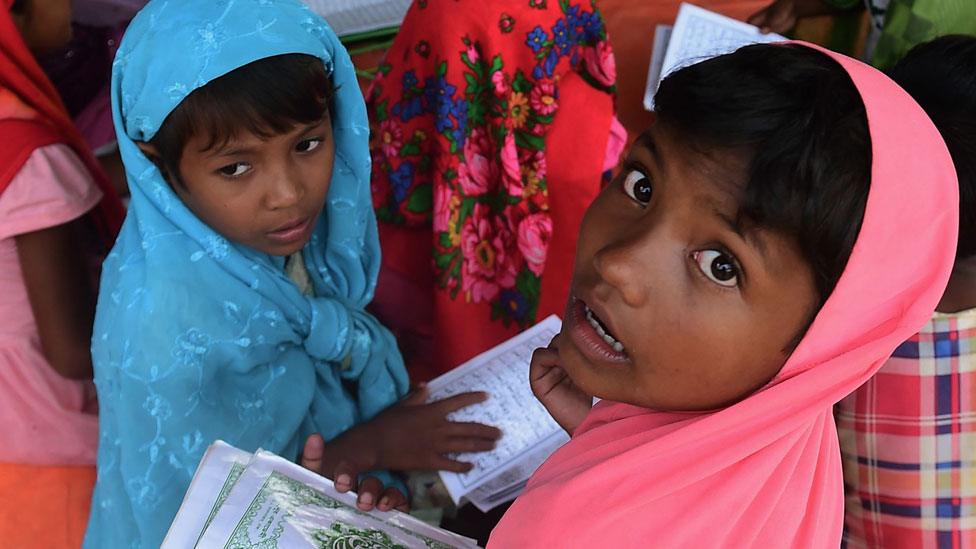
- Published6 September 2017
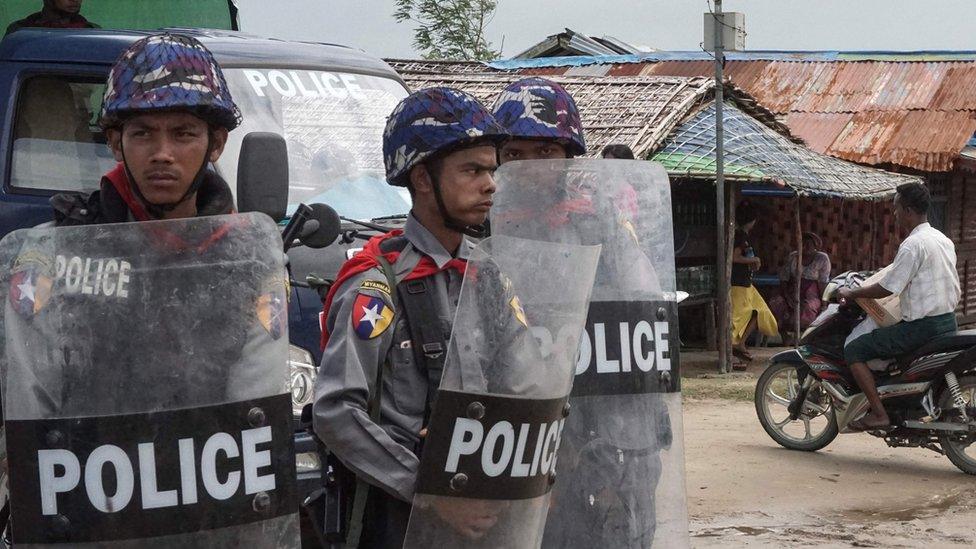
- Published19 September 2017
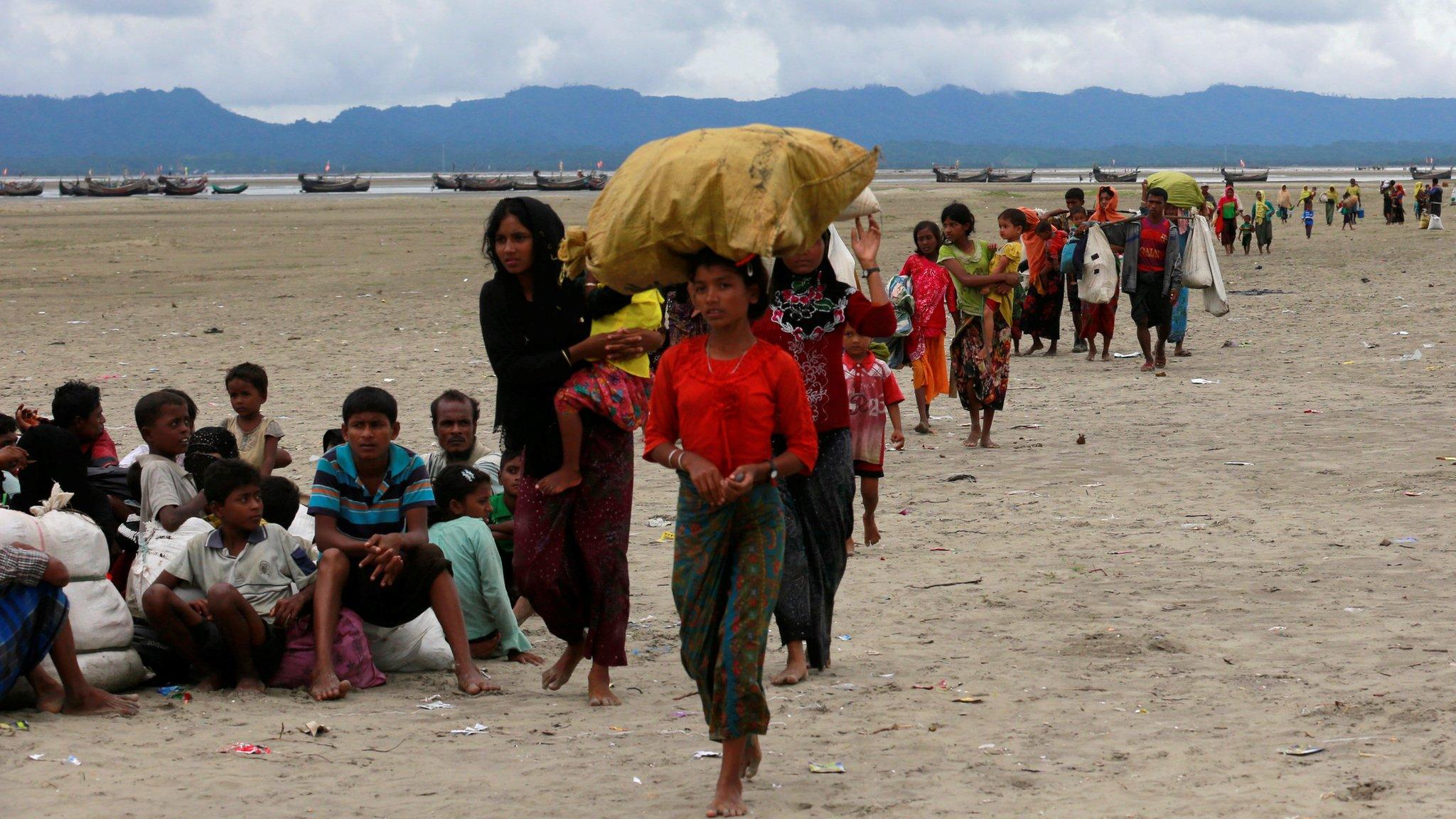
- Published7 September 2017
